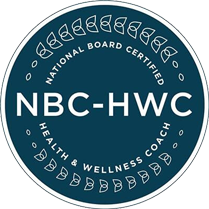Protein Confusion? Let’s Clear It Up.
Are you confused about protein? You’re not alone. With dietary fads constantly shifting and headlines offering contradictory advice, it’s easy to feel overwhelmed. As a National Board Certified Health & Wellness Coach and Certified Holistic Nutritionist, part of my job is to stay current with what science—not just social media—says about our nutritional needs.
Let’s break down the latest research and clarify some of the most common protein questions: how much do we need, where should it come from, and why does it matter?
🧬 Bio-Individuality: One Size Doesn’t Fit All
First, let’s remember: you are unique. Your genetics, metabolism, activity level, and even stress and sleep patterns all influence how your body uses protein and what kinds feel best for you.
Some people feel great on dairy-based proteins, while others feel bloated or fatigued. Some thrive with more plant-based meals, while others feel stronger and more energized with animal sources. Nutrition should always be personalized, not prescriptive.
💪 Why Protein Matters
Protein is so much more than a “macronutrient” on a label—it’s a structural and functional building block of your body. It plays a vital role in:
-
Building and repairing tissues (muscles, skin, organs)
-
Making enzymes and hormones

Supporting immune function
-
Regulating metabolism and satiety
And here’s something many people don’t realize…
🧓 Muscle Loss and Aging: What You Should Know
Starting in your 30s and 40s, your body begins to lose muscle mass at a rate of 3–8% per decade if you’re not actively working to maintain it. This natural process, called sarcopenia, accelerates with age and can impact your strength, balance, metabolism, and overall health.
One of the most powerful ways to prevent or slow this decline is through:
-
Adequate protein intake
-
Consistent resistance or strength training
Protein isn’t just for athletes—it’s essential for healthy aging, energy, injury prevention, and maintaining independence long-term.
📊 How Much Protein Do You Need?
Research supports a tiered approach to daily protein intake, based on your activity level:
| Activity Level | Protein Recommendation |
|---|---|
| Sedentary (little to no exercise) | 0.5 grams per pound of body weight |
| Moderately Active (3–4 workouts/week) | 0.7 grams per pound |
| Highly Active (daily or intense training) | 0.9 grams per pound |
For example, a moderately active person weighing 150 pounds would aim for 105 grams of protein per day (150 x 0.7).
🍽️ What Does That Look Like?
Here’s a simple way to estimate your protein intake without overthinking it:
-
1 ounce of protein-rich food = ~7 grams of protein
-
Palm of your hand = roughly 3 ounces = ~21 grams
Aim for 25–30 grams of protein per meal to support energy, blood sugar balance, muscle repair, and appetite regulation.
🥩🌱 Where Should Protein Come From?
You can get quality protein from both animal and plant-based sources, and variety is key.
✅ Animal-Based Protein:
-
Eggs, fish, chicken, turkey, beef, dairy (yogurt, cheese)
-
Naturally complete proteins (contain all 9 essential amino acids)
-
More easily absorbed by the body
And yes—red meat can be part of a healthy diet. Look for grass-fed, grass-finished beef or free-range, pasture-raised meats, which have better fat profiles (like more omega-3s) and fewer environmental toxins.
🌿 Plant-Based Protein:
-
Lentils, chickpeas, beans, tofu, tempeh, edamame, quinoa, nuts, seeds
-
Most plant proteins are incomplete on their own (missing one or more essential amino acids), but combining foods like rice and beans or hummus and pita can make a complete protein
-
Rich in fiber, phytonutrients, and healthy fats
-
Support gut health and are often more environmentally sustainable
Including a mix of both animal and plant-based proteins can help you meet your nutritional needs while also offering a broader spectrum of health benefits.







Leave a Reply
Want to join the discussion?Feel free to contribute!